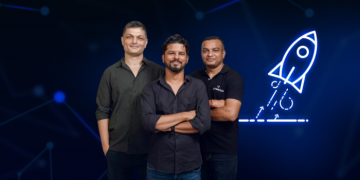Born into a family of farmers in a village in Tamil Nadu’s Thanjavur district, Sridhar Vembu went on to study at Princeton University, New Jersey. He then worked at Qualcomm in San Diego, California. In 1996, along with Sreenivas Kanumuru and Tony G Thomas, Vembu founded AdventNet to make software products. In 2009, the company was renamed to Zoho Corp.
Zoho Corp has turned into India’s only billion-dollar software products company by revenue, and Vembu is committed to his vision for Zoho to be one of the top five technology players in the world.
R&D has become the main focus for Vembu. He sees R&D as the key to India’s development and believes that it can be the perfect channel for rural development. Over the last few years, Vembu has moved his base to a village in Tenkasi district, 650 km from Chennai, and continues to develop the area extensively.
In a recent interview, Vembu touched on the challenges present in the Indian tech industry. The SaaS industry being one of the challenges. He said, “SaaS went through a bubble post-pandemic. Clearly, that bubble is deflating, and all that investment has moved to the new bubble—artificial intelligence (AI). Since, globally, the market is subdued in terms of investment, it is also reflects in India.”.
He also emphasised on the pressing need to invest in research and development (R&D). He said, “Whether it’s in semiconductors, drones, medical instruments, robotics, biotechnology and more. We need to create some durable tech-led growth across fields, and for that we need to invest in R&D. We have been weak in R&D by a lot. Slowly, the awareness that we need to master R&D is spreading. However, it has a long gestation period—if we invest now, it might take close to five years for the results to show.”.
On the topic of unemployment, he said that the issue is tricky to forecast. But, increased investment in R&D would create a “multiplier effect” and ultimately generate jobs. He also proposed that instead of developing a sole national economic engine, every region in India should have one of its own. He cited the example of job creation in Tenkasi, whereafter the creation of a thousand software development and mechanical jobs, the local ecosystem also saw employment expansion in the hospitality and construction fields.
His philosophy of Research and Development with Rural Development – R&D powering RD is a promising economic approach that will ensure sustainability and equitability. By spreading economic engines across the nation in rural areas, the countryside will benefit with the economic boost and the pressure posed on urban centres due to migration will be eased.






















